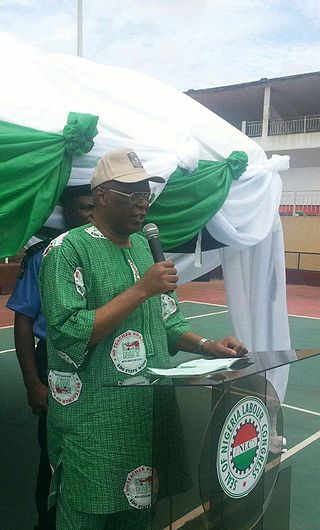Political party in Kenya
 |
|---|
|
Economic schemes |
The Federal Party of Kenya (FPK) is a political party in Kenya.
 |
|---|
The Federal Party of Kenya (FPK) is a political party in Kenya.
The FPK nominated 20 National Assembly candidates for the 2007 general elections, receiving 0.2% of the vote and failing to win a seat.
In the 2013 elections the party nominated 56 National Assembly candidates; increasing its vote share to 1.6% and winning three seats; [1] Michael Aringo Onyura in Butula, Peter Safari Shehe in Ganze and Charles Gimose in Hamisi. [2] It also won one seat in the Senate, Ali Abdi Bule in Tana River County. [3]

The politics of Kenya take place in a framework of a presidential representative democratic republic, whereby the president is both head of state and head of government, and of a multi-party system in accordance with a new constitution passed in 2010.

A member of parliament (MP) is the representative in parliament of the people who live in their electoral district. In many countries with bicameral parliaments, this term refers only to members of the lower house since upper house members often have a different title. The terms congressman/congresswoman or deputy are equivalent terms used in other jurisdictions. The term parliamentarian is also sometimes used for members of parliament, but this may also be used to refer to unelected government officials with specific roles in a parliament and other expert advisers on parliamentary procedure such as the Senate parliamentarian in the United States. The term is also used to the characteristic of performing the duties of a member of a legislature, for example: "The two party leaders often disagreed on issues, but both were excellent parliamentarians and cooperated to get many good things done."
The electoral system of Australia comprises the laws and processes used for the election of members of the Australian Parliament and is governed primarily by the Commonwealth Electoral Act 1918. The system presently has a number of distinctive features including compulsory enrolment; compulsory voting; majority-preferential instant-runoff voting in single-member seats to elect the lower house, the House of Representatives; and the use of the single transferable vote proportional representation system to elect the upper house, the Senate.

The National Congress is the legislative body of Brazil's federal government. Unlike the state legislative assemblies and municipal chambers, the Congress is bicameral, composed of the Federal Senate and the Chamber of Deputies. The Congress meets annually in Brasília from 2 February to 22 December, with a mid-term break taking place between 17 July and 1 August.

Elections in Kenya take place within the framework of a multi-party democracy and a presidential system. The President, Senate and National Assembly are directly elected by voters, with elections organised by the Independent Electoral and Boundaries Commission (IEBC).

The National Assembly of the Republic of Kenya is one of the two Houses of the Parliament of Kenya. Between 1966 and 2013, it served as a unicameral house. In 2013, it became the lower house when the Senate was reestablished.

The 1906 Australian federal election was held in Australia on 12 December 1906. All 75 seats in the House of Representatives, and 18 of the 36 seats in the Senate were up for election. The incumbent Protectionist Party minority government led by Prime Minister Alfred Deakin retained government, despite winning the fewest House of Representatives votes and seats of the three parties. Parliamentary support was provided by the Labour Party led by Chris Watson, while the Anti-Socialist Party, led by George Reid, remained in opposition.

The Non-Custodial Parents Party was a minor political party in Australia registered between 1999 and 2020. It supported less government control of many aspects of daily family life, focusing on reform of family law and child support.

The Government of the Republic of Kenya (GoK) is the national government of the Republic of Kenya, a federal republic located in East Africa, composed of 47 Counties, each county with its own semi-autonomous governments, including the national capital of Nairobi, where the national government is primarily based.
George Roy William McDonald was an Australian politician.

Oserheimen Osunbor,, is a Nigerian lawyer and politician who was a Senator of the Federal Republic of Nigeria from 29 May 1999 to 29 May 2007 and the Governor of Edo State of Nigeria from 29 May 2007 to 11 November 2008.

The National Revival Movement Party is a political party in Azerbaijan led by Faraj Guliyev.

The Party of Independent Candidates of Kenya (PICK) is a political party in Kenya.

The Independent Party (TIP) was a political party in Kenya.

The Kenya African Democratic Union – Asili (KADU–Asili) is a political party in Kenya.

The Peoples Party of Kenya (PPK) is a political party in Kenya. Its leader is Jacob Wangai Gitau.

The Muungano Party (MP) is a political party in Kenya.

The Maendeleo Democratic Party (MDP) is a political party in Kenya.

The Tasmanian Nationals are a political party in the Australian state of Tasmania, aligned with the National Party of Australia. The party is not currently registered with the Tasmanian Electoral Commission, and is not separately registered with the Australian Electoral Commission, unlike the other state branches of the Nationals.
The 5 September 1914 election was a double dissolution election which meant all 36 seats in the Senate were up for election, with each Australian states electing six members, with half to serve a six-year term and the rest to serve a three year term. Terms were taken to have commenced on 1 July 1914. The Senate resolved that in each State the three senators who received the most votes would sit for a six-year term, finishing on 30 June 1920 while the other half would sit for a three-year term, finishing on 30 June 1917.